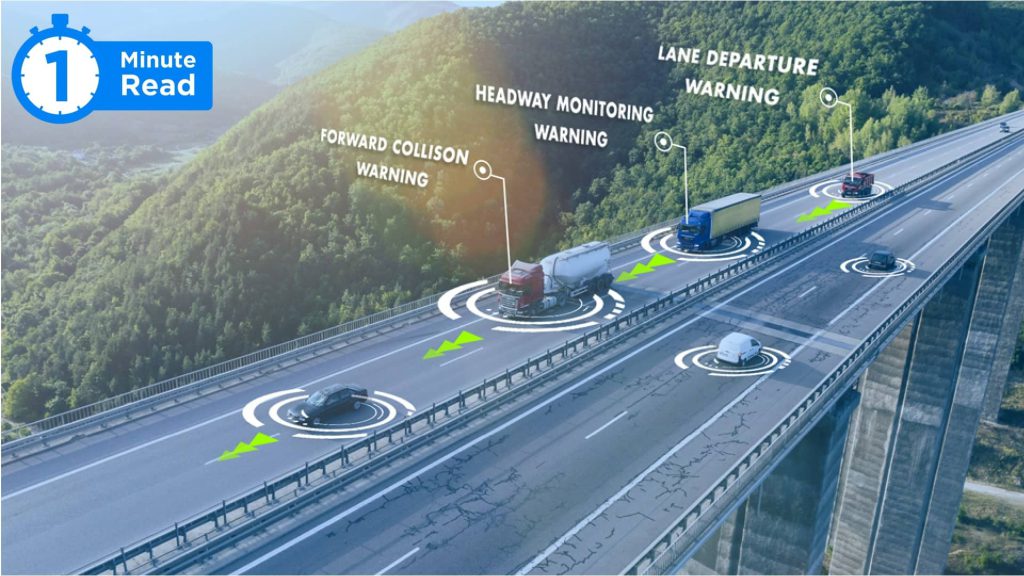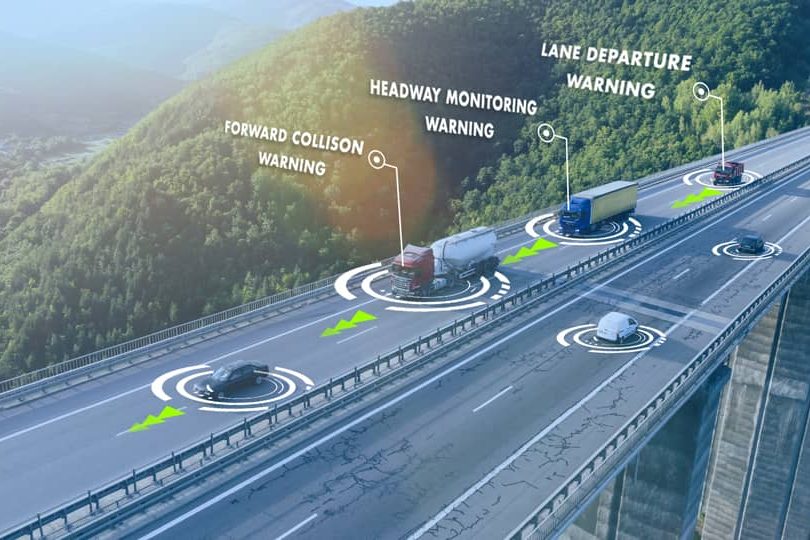
ADAS is an acronym for Advanced Driver Assistant System technologies. It uses sensors and cameras to enhance fleet safety. It can also help drivers navigate safely through rush-hour roads as well as long highway hours. ADAS predicts a possible collision and warns drivers about it. Here’s a list of warnings that can be generated by ADAS. Keep reading to learn what they mean:
1. Forward Collision Warning (FCW)
With the help of road-facing cameras and sensors, ADAS scans the road and traffic conditions. If your vehicle is too close to the car ahead of you and yet you continue traveling at a speed at which a collision is guaranteed, then the warning will be triggered. It notifies you only when you tailgate or don’t hit the brakes even after you see the car in front of you slowing down. The notifications come several seconds before the collision happens–so drivers can react and avert it.
2. Lane Departure Warning (LDW)
Reckless lane changes and departures can lead to brutal accidents. Sometimes, drivers consciously engage in reckless lane departure due to reckless driving habits. In other instances, it occurs when the driver is incapacitated because of a lack of sleep. In such scenarios, Lane Departure warnings can be of great help. It alerts the driver when they drift off their lane. The warnings continue until the driver takes corrective actions.
3. Pedestrian Collision Warning (PCW)
With the help of artificial intelligence technology, ADAS recognizes pedestrians and bicyclists on the road. It issues the Pedestrian collision warning when the possibility of a frontal crash with a pedestrian is detected. Some advanced systems may automatically apply the brakes and also reduce the fleet’s speed to mitigate the risk of a collision.
4. Forward Vehicle Start Alert (FVSA)
Slow-moving traffic is exhausting for drivers. They may get distracted at times and not even notice when the traffic begins to move. In such situations, the Forward Vehicle Start Alert can prove to be helpful. Every time a vehicle at the front starts moving after breaking or a halt, it notifies you.
5. Headway monitoring Warning (HWM)
Leaving enough braking distance is the key to avoiding rear-ended collisions. ADAS’ forward collision warning does exactly this. It helps you maintain a safe headway distance. Many drivers underestimate the amount of time they need to stop their vehicles. Heavy commercial vehicles take longer to stop when compared to a sedan. So, the HMW is issued when the headway distance is below the defined threshold.
6. Traffic Sign Recognition Warning (TSR)
Dashcams equipped with image processing and identification technology can interpret traffic signs and signals. For instance, when your driver doesn’t stop at a red light, the system will identify a traffic rule violation and record it. If you’re a fleet manager, you’ll get notified via email or SMS.





